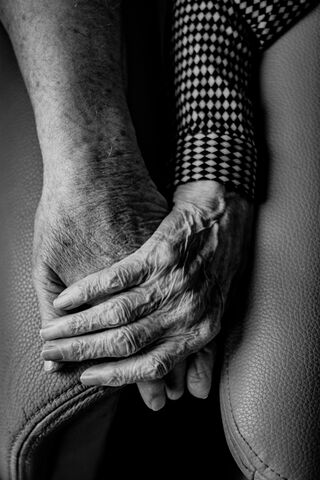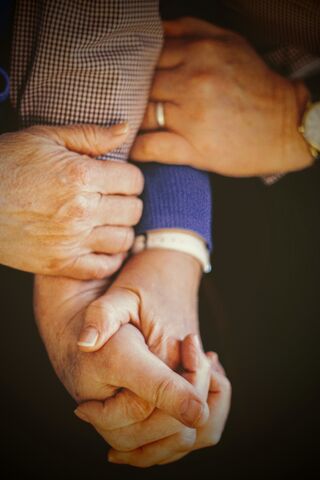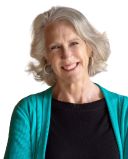Anxiety
Elder Orphans: Who Will Hold Our Hands at the End of Life?
Putting plans in place is crucial for those without kids — and everyone.
Posted June 30, 2021 Reviewed by Ekua Hagan
Key points
- Contingency planning for how to manage one's elder years can be daunting, especially for those who value their independence.
- Not planning for the elder years, especially if one doesn't have kids, can result in decisions being made by inattentive relatives or strangers.
- Deepening one's current relationships and making a list of trusted loved ones can help those without kids plan for the future.

Let’s not kid ourselves. Making plans that assure our elder years are managed to our liking and fit within our budget is crucial for those without children. We know we can’t count on offspring to oversee our dotage. There’s even a name for what we may someday become—elder orphans.
Planning is also imperative for parents, especially those whose offspring live far away or are ill-suited to the care involved. Some are estranged from their kids and need to tap people outside the immediate family.
The risk of not planning for one's elder years
Perhaps we can push planning aside for a while, but when we can’t make decisions for ourselves, an inattentive relative, acquaintance, or potentially nefarious do-gooder may step in and make them for us. If we’re really in a jam, a judge will appoint someone to manage our affairs. No one wants to face the fact, but none of us is getting out of here alive.
In her cover story for Kiplinger’s Retirement Report, Alina Tugend offers comprehensive planning advice from those in the know, including a geriatric care manager, a certified financial planner, and numerous childless and childfree singles.
“Those who have always or long been single and childfree know they have only themselves to rely on. They understand they need to be as organized and practical about their future as possible, both financially and physically, while also creating a lifestyle that builds connection and purpose,” says gerontologist Mary Jo Saavedra. Good preparation, she says, can help you avoid “the majority of threats that derail a safe and fulfilling aging experience.”
Should you need an extra incentive to get your affairs in order, watch the film I Care a Lot. In it, Rosamund Pike plays a smooth-talking, dewy-eyed “professional” caregiver, who turns out to be anything but.
Accepting the idea of interdependence
Many of us independent types struggle with asking for help, even for something simple, like a ride to the doctor. The thought of becoming dependent on others is enough to stall the planning process.

There’s a crucial way station between independence and dependence, says Keren Brown Wilson, Ph.D., widely credited as the architect of assisted living. That way station is interdependence—a mutual reliance on one another.
Wilson doesn’t equivocate when she talks about the importance of leaning on others. “People think I’m a professional woman. I’ve done all these things, and I can take care of myself. I think that nobody can take care of themselves,” says Wilson. “Gender has nothing to do with it. Age doesn’t have anything to do with it. It’s recognizing that there’s a need to be interdependent.”
Wilson doesn’t have children, though she wanted them. She’s dedicated to improving life for elders, particularly those with limited means. “In the absence of adult blood relatives,” she says, “we have to figure out what to do. To deny it is kind of silly. There are lots of ways to form relationships that go beyond blood.”
Deepen ties with people you already care about to form a family of the heart. Or tap a sibling’s kids or trusted neighbor. Many will consider it a compliment to be asked to play a more active role in your life. Develop a list, so if someone declines you have alternatives at the ready.
None of my family of origin lives nearby. After my divorce, I turned to friends to fill roles should I need help in the future. It wasn’t easy, but once I spit out the question, everyone said yes. I’ve since signed on to take on roles for others who may need my help. It feels really good to lean on one another.

For years, I obsessed about who would hold my hand when I die. I know I’m not the only one—it’s the most frequent worry those without kids have shared with me. Perhaps because the answer isn’t an obvious person.
I’ve recently shifted my thinking about my last day. Instead of worrying about it, I now am curious to discover who will be by my side. Maybe it will be someone I’ve known forever, or perhaps a kind face I won’t even recognize.
I picture a loving presence nearby, my hand in theirs. “My, my,” I will say. “So it’s you.”
References
Selected excerpts from Kaufmann, Kate (2019). Do You Have Kids? Life When the Answer is No. Berkeley, CA: She Writes Press.


